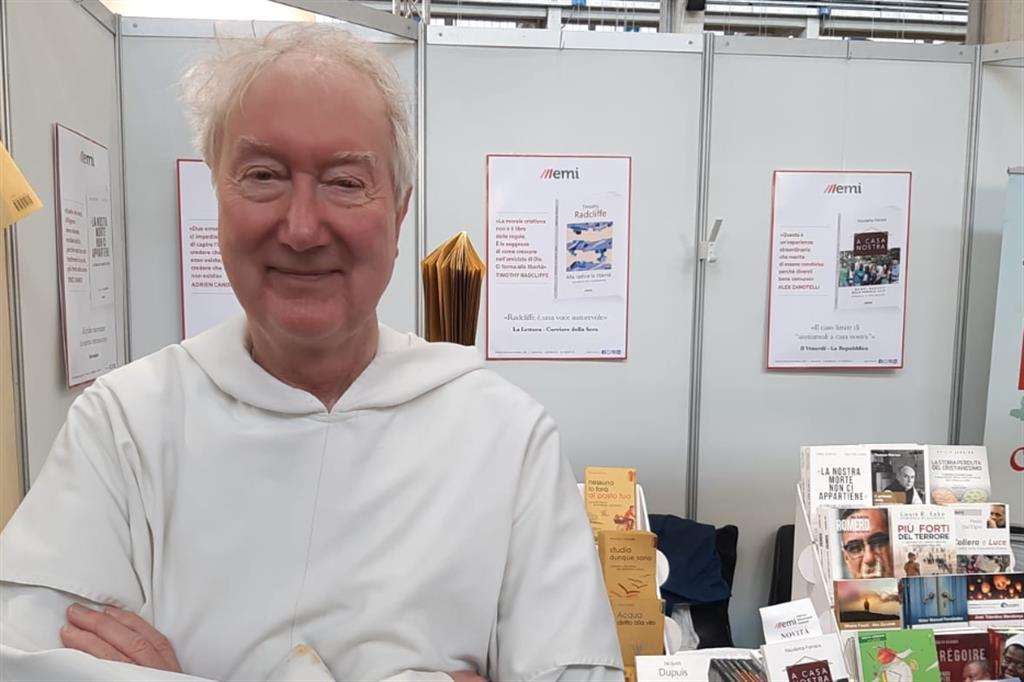
Timothy Radcliffe – Carlo Brivio
We publish here an excerpt from the speech by Timothy Radcliffe, theologian and biblical scholar, contained in the volume signed by Pope Francis According to God’s style. Reflections on the spirituality of the priest (Libreria Editrice Vaticana, 72 pages, 5.50 euros), which presents the pontiff’s speech at the recent international symposium “For a fundamental theology of the priesthood”, held last February in the Vatican. Francis’ text was commented on by Father Radcliffe, a Dominican and former master general of the Order of Preachers, and by Don Luigi Maria Epicoco, professor of philosophy at the Lateran University and spiritual assistant of the dicastery for Communication. Ezio Falavegna, parish priest and theologian of the Theological Faculty of Triveneto, edited some cards for the permanent formation of the clergy which enrich the text.
I entered the Order of Preacher Friars with the desire to become a brother among other brothers. Arriving at the moment of ordination, I had some doubts: I had always felt uncomfortable in the face of any hint of clericalism and I had accepted to be ordained because my confreres wanted it and it was useful for preaching. I would have liked to read the pope’s words on that occasion! In fact, Francis affirms that the vocation to the ministerial priesthood opens up in the priest “that potential of Love that we received on the day of our Baptism”. That’s exactly what I too discovered, also experiencing that, since I’ve been a priest, “life always becomes wonderfully complicated”. It is through complications, the small victories of grace and our own failures that we access God’s eternal simplicity. Francis examines the four forms of closeness that underlie this love: closeness to God, to the bishop, to priests, to the people. “A priest is invited above all to cultivate this closeness, intimacy with God”: when I was a young friar I struggled to understand the meaning of this statement. Do I have a personal relationship with the Lord? I kept conscientiously silent in the chapel wondering what I was doing. I didn’t hear any voices. I could not think of Jesus as some kind of invisible friend next to me. Was I deceiving myself and others or were the others deluded? Still, I continued to wait. Sharing this silence with confreres and lay friends helped me hope that one day I would more deeply perceive God’s closeness. Over time what I have come to believe and experience is that this intimacy does not mean that God is beside me as a person stands next to another. The fact that God speaks to me continually gives me existence. “I am a mission” (Evangelii Gaudium, n. 273), I exist because God has found me, as Francis sweetly says, and whom God calls into existence at every moment. In the Bible, when God addresses someone, the answer he usually gets is Hineni, “Here I am”. My deepest identity lies in that word: “Here I am”. I sit in silence, vulnerable before God, and let any other superficial sense of identity fade away. St. Augustine says to God: “You were with me and I was not with you”. God waits for me to go home, to myself, where He is ready to embrace me like the father with the prodigal son. Every time I have lost the sense of my vocation it has happened because I have fled that silence in which I have the courage to be myself, naked before God and without shame. Francis often asked his priests in Buenos Aires how they prepared to go to sleep in the evening: “And don’t you go to the Lord, at least to say good night?”. I have to do this more often, it’s not enough to just say “Good morning”. Furthermore, Francis indicates desolation as a moment of encounter with God: “The path of the desert is the path that leads to intimacy with God, provided however that one does not flee, that one does not find ways to escape from this encounter”. I recently had surgery for jaw cancer. I stayed in the hospital for five weeks. For a time, my perception of who I was was challenged. A writer and preacher, I could not think clearly and at times had no idea where I was. Normally I like to do many things, but I couldn’t do anything. In that humble condition of deprivation I felt closer than ever to our Lord who incarnated in a defenseless child, totally dependent on others. For days and days I suffered from terrible thirst, but the only thing I could do was to moisten my lips. I obsessively thought of the thirst that tormented Israel as they wandered in the desert and I kept repeating to myself: “I tested you at the waters of Meribah” (Psalm 81:8). In that arid desert I met the man who said to the Samaritan woman at the well: “Give me a drink” (John 4:7) and who died thirsty on the cross. In such a desolation everything we have accomplished is like nothing, the images we have made of ourselves collapse and we find ourselves next to the Son of man who made himself last. […] I have met many excellent bishops, but only one has been a true father to me: Francis, bishop of Rome. After the operation I was asleep for nearly thirty hours, only regaining consciousness for a few moments while in intensive care; around that time my prior brought me a hand written note for me. He came from Francesco. It is a typical example of the way in which he exercises his episcopal paternity: the pope makes thousands of telephone calls, knocks on the doors of dozens of people and writes letters in his own hand that always amaze those who receive them. Francis begins his reflection on closeness to the bishop by speaking of obedience. This “is not a disciplinary attribute, but the strongest characteristic of the ties that unite us in communion”. It involves confrontation, listening, in some cases even tensions, but never breaking. As a Dominican, this is the obedience that I owe, as well as to God, also to my confreres gathered in Chapter or to my superiors. In the Dominican tradition, obedience is not so much a submission of the will as an opening of the ears – ob-audire – and therefore of the mind. The Dominican theologian Herbert McCabe wrote: «Obedience becomes perfect when those who command and those who obey come to share the same vision. Blind obedience, in our tradition, makes no more sense than blind learning does.’ Obedience means opening our hearts and minds to one another, seeking together to discover what is good and true. Obedience, therefore, is rooted in dialogue. Above all during that community moment which is the chapter, we friars try to enter into dialogue with the brothers with whom we disagree, trying to understand why they believe in things that seem wrong to us. Obedience requires the ability to enter into their experience, the intelligence to understand the truths they hold, the humility to learn from them. The priest should excel in the art of conversation. […] Unity within dioceses and parishes does not consist in a uniformity resulting from imposition, but in a continuous dialogue that broadens and improves our mind overcoming ethnic, ideological and generational divisions. Thus we share the life of the Word of God, whose ministry was an ongoing dialogue with friends and enemies, religious leaders and beggars until he was silenced on the cross. On the third day, however, the dialogue resumed in the garden: «Maria» – «Rabboni». No silence should be infinite. Every interrupted dialogue should have its Easter morning.
Spirituality. Radcliffe: «Silence and dialogue are the secrets of being a priest»

